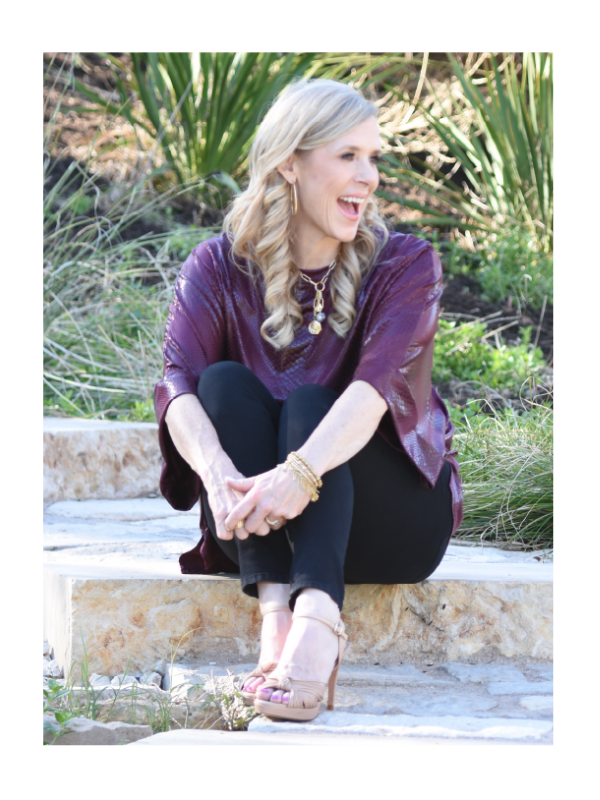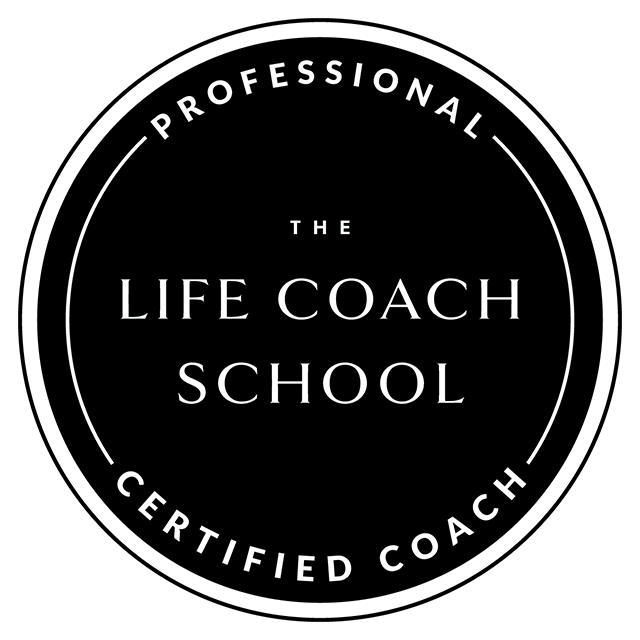Are you looking for change, but you don't need psychotherapy?
I'm also a certified life coach.
Coaching is not a regulated industry, and many therapists add coaching without any relevant training or experience.
I've been the client of individual and group coaching, earned a life coach certification, and continue to learn new skills.
Coaching can help with many issues that don’t need psychotherapy, such as:
Overcoming emotional eating and making peace with food, without focusing on weight loss
Helping aging parents or a loved one with dementia
Living with a partner who has a mental illness
Following through on your goals, like the same New Year’s resolution every year
Coping with overwhelm, procrastination, organization and “I don’t have enough time”
Improving relationships with colleagues, family and friends
Working through life transitions, such as an empty nest or starting a new career
Creating confidence to make decisions, try new things and cope with disappointment
For those who have had therapy: changing the things that you now understand better, but didn’t learn what to do differently

Why Would A Psychologist Become a Life Coach?
I'm always working on myself, and I've had plenty of my own psychotherapy. I've also had some specific goals that I didn't think needed more therapy, so I tried coaching. I learned that life coaching uses a unique approach that isn't taught in graduate school or continuing education programs.
Therapy has helped me understand my past and cope with some challenging life events. Coaching has taught me a specific framework in a more active, instructive and direct way. I felt so strongly about this process that I decided to learn the same approach that helped me and add life coaching to my practice.
And there are many advantages:
As a psychologist, I can work only with people who live in my state, but as a coach, I can work with anyone who does not need psychotherapy, anywhere.
As a psychologist, I have to give my clients a mental health diagnosis and possibly share their personal information with insurance companies. As a coach, I can keep everything truly confidential.
My coaching clients focus on issues that don’t need therapy, but still get the benefits of my 25+ years of experience as a therapist.
Life coaching IS:
Identifying exactly what you want out of life and how to get there.
Determining what is holding you back from completing your plans.
Teaching you frameworks for creating and reaching goals, handling relationships, processing negative emotions, and much more.
Separating out the facts in your life from your thoughts about them.
Questioning your assumptions and creating a new perspective.
Understanding how your own brain can get in the way of change, and how to manage it.
Focusing on the present and the future, not on the past.
Life coaching is NOT:
A substitute for psychotherapy. I work with individuals as either a psychologist or a coach, but not both.
A paid friend or cheerleader who will agree with everything you say.
Forced accountability by creating pressure. Coaching teaches you how to keep your word to yourself.
Telling you what to do. I teach you how to confidently make decisions with no regrets.
Necessary for the rest of your life. In coaching with me, you learn how to coach yourself.
For people who are having difficulty functioning: for example, depression or anxiety is interfering with daily life, having suicidal thoughts, working through trauma, or active eating disorder behaviors.
Coaching with me will help you learn to live the life that you really want.
You can make changes that you never thought were possible.

I offer a complimentary video consultation to determine if coaching might be right for you:
There's nothing like talking face-to-face to see what it's like.
I’ll do a thorough assessment of your goals.
You can ask me any questions you’d like.
If you’re not sure if you need therapy or coaching, I’ll help you figure it out.
Email: [email protected]
Text or call: 512-200-3112. I answer the phone myself.
You may be concerned that…
You're not sure if you need therapy or coaching:
I'm happy to discuss this, but know that if there is any question whether coaching is appropriate, I will recommend psychotherapy.
I do not see individuals for both services, and I don't switch from one mode to the other.
I’ll try to hard sell you my program:
I only accept clients who I believe are a great fit, so I won’t waste our time that way.
I’ll want to spend more time learning about your struggles and how I could help, than on telling you about me.
What others are saying...

“Jill asks questions that are like unlocking a little door in your brain so you can see a hallway with lots of other doors that open up to different ways of seeing things. In her gentle but organized way, she’s helped me untangle my big spaghetti bowl of thoughts and feelings so that everything makes sense and I can change so many things that I don’t like about my life. Coaching is part of my self-care.”
—Jenny

“I love working with Jill as a coach - I always get exactly what I need! Her blend of expertise and experience gives her this incredible ability to hone in on what's most effective. She is truly gifted and amazing!”
—Deb

“Jill helped me figure out a really complicated work situation where I felt stuck and didn’t even know what I wanted. I would not have thought of the questions she asked to get me to my decisions. We made a plan that helped me get through some tough meetings and now I am in a so much better place with work, and my whole life actually.”
—Catherine K.
Let's work together to change your life.
If you choose to work with me, this is as a coach and not as a psychologist. Coaching does not prevent, cure, or treat any mental or medical condition, and is not a substitute for psychotherapy with a licensed mental health professional. Although I am a licensed psychologist, my coaching is a separate business that is not intended to diagnose or treat mental illness.
3 things I learned in coaching that I didn't get from therapy
©2023 Dr. Jill Foreman. All rights reserved. | Privacy Policy | Terms | Disclaimer


